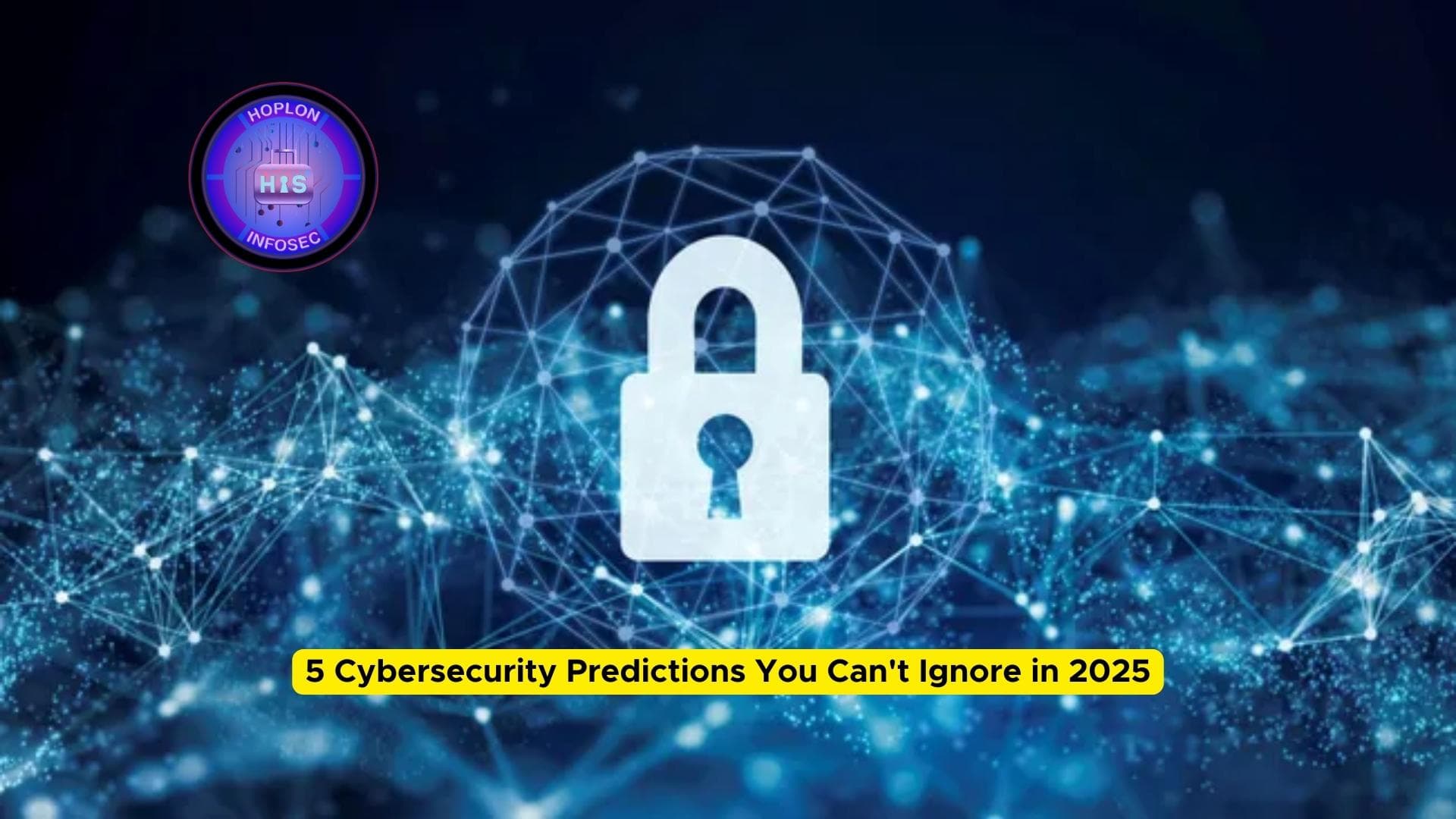5 Cybersecurity Predictions You Can't Ignore in 2025

Hoplon InfoSec
24 Dec, 2024
It’s that time of the year again when we reflect on the past 12 months in cybersecurity and anticipate what 2025 has in store. The digital landscape is ever-changing, and with the rapid pace of innovation, new opportunities and challenges arise for businesses and individuals alike. Here, we explore the major cybersecurity trends of 2024 and share our top five cybersecurity predictions for 2025.
Reflecting on 2024: A Year of Evolution in Cybersecurity
Generative AI has been a defining force in cybersecurity this year, with attackers leveraging the technology to craft increasingly sophisticated scams and malware. However, it hasn’t been all bad news. Security software providers have also started using AI to develop more robust defenses against emerging threats, showcasing the dual-edged nature of technological advancements.
2024 will also be remembered as the year of unprecedented data breaches. At the start of the year, the so-called “mother of all data breaches” exposed 26 billion records, setting the tone for a turbulent 12 months. According to NordLayer, over 1 billion records were leaked throughout the year, emphasizing the need for stronger data protection measures.
As we gear up for 2025, let’s examine our top five cybersecurity predictions for the coming year.
1. AI’s Dual Impact on Cybersecurity Will Intensify

Generative AI’s influence on cybersecurity will deepen in 2025, delivering both productivity gains and heightened risks. Dror Liwer, co-founder of cybersecurity firm Coro, noted, “In 2025, I expect we’ll see a dual impact from AI on cybersecurity: increased productivity and heightened risk.”
Attackers will likely exploit AI chatbots to harvest sensitive information shared with large language models (LLMs). They’ll also use AI to craft advanced malware, create realistic fake websites, and execute more convincing digital scams. These developments will make it increasingly challenging for users to distinguish between legitimate and malicious content.
Conversely, cybersecurity providers are working tirelessly to harness AI to combat these threats. “At the moment, the threat actors of the world are a couple of steps ahead,” said Eyal Benishti, Founder and CEO of Ironscales. “In 2025, we can only hope that the hard work and innovation among cybersecurity developers will help us to close that gap.”
2. Encryption: The Love-Hate Relationship Continues

The debate surrounding encryption is set to dominate discussions in 2025. US authorities are urging citizens to adopt encrypted messaging services in response to a surge in attacks on the country’s telecoms. Meanwhile, law enforcement agencies continue advocating for backdoors in these services to track criminal activities. The EU’s controversial Chat Control proposal exemplifies this tension.
“We see 2025 as a defining year in the political arena,” said Jan Jonsson, CEO of Mullvad VPN. “There are forces seeking to erase secure and private communication through lawful access, and people need to become aware of this and the consequences it has for free and open societies.”
Privacy advocates warn that weakening encryption poses significant risks to free and open societies. As legislation aiming to break encryption gains traction worldwide, expect advocacy efforts to intensify, with technologists, cryptographers, and privacy experts at the forefront of the debate.
3. Phishing Attacks Will Get Even More Creative

Generative AI has already enabled scammers to produce more convincing phishing emails. This trend is set to continue in 2025, with attackers employing increasingly creative tactics to deceive users. Shai Mael, Director and Global Sales Engineer at Ironscales, predicts a rise in social engineering strategies and novel phishing techniques.
“We’re already beginning to see a growing number of voicemail phishing attacks, as well as attacks in which malicious links are embedded in email attachments – both of which are proving to be some of the most effective phishing strategies in use today,” Mael explained.
While some security solutions now offer advanced phishing protection, vigilance remains crucial. Tools like NordVPN Threat Protection Pro can help, but users should remember that critical judgment is their most potent defense against these evolving threats.
4. VPN Usage Will Become Essential

VPNs have surged in popularity over the past year, and their importance is only expected to grow in 2025. These tools provide a versatile layer of security by encrypting internet traffic and masking users’ IP addresses, making them indispensable in an era of increasing online threats.
“As concerns about online privacy continue to grow, I believe we’ll see even more people and businesses turn to VPNs for protection,” said Lauren Hendry Parsons, Digital Rights Expert at ExpressVPN.
Beyond privacy, VPNs are becoming crucial for navigating stricter online restrictions and protecting sensitive data from third-party snooping. With the rise of AI-driven cyberattacks and data breaches, adopting a VPN is a proactive step towards securing your digital presence.
5. Preparing for a Post-Quantum World

Quantum computing’s eventual arrival will fundamentally alter the cybersecurity landscape. Expected to become mainstream between 2030 and 2035, quantum computers can break current encryption methods, necessitating a shift to post-quantum cryptography.
The cybersecurity industry is already preparing for this transition. In 2024, the National Institute of Standards and Technology (NIST) released its first quantum-resistant encryption standards. Work will continue in 2025 as software providers integrate these standards into their systems.
Google’s Cybersecurity Forecast 2025 highlights the importance of preparing for this quantum leap. Secure email, messaging apps, and VPNs are expected to implement post-quantum cryptography alongside traditional methods, ensuring robust protection against future threats.
The Road Ahead
As we look ahead to 2025, it’s clear that the cybersecurity landscape will continue to evolve rapidly. The rise of generative AI, the ongoing encryption debate, increasingly creative phishing tactics, the growing importance of VPNs, and preparations for quantum computing are just a few trends shaping the future.
Staying informed and proactive is essential in this dynamic environment. Whether you’re an individual looking to protect your personal information or a business aiming to safeguard critical assets, understanding these trends and adapting to the changing landscape will be key to navigating the challenges of 2025 and beyond.
Share this :